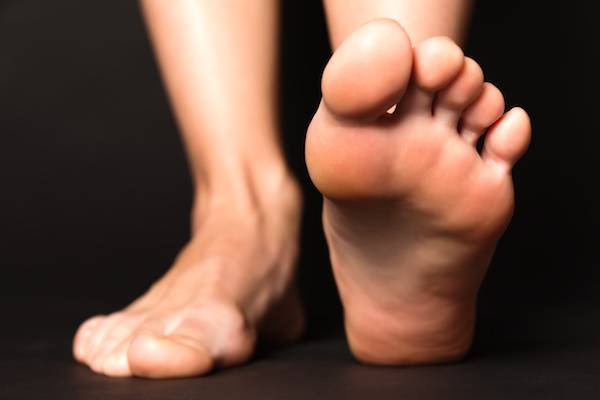What You Need to Know About Bunions
First, What Are Bunions?
A bunion is a painful, bony bump that develops on the inside of the foot at the big toe joint. Bunions are referred to by doctors as hallux valgus.
Bunions develop over a period of time. Long-term pressure on the big toe joint causes the big toe to bend towards the second toe.
Over time, the normal structure of the bone changes, resulting in the bunion bump. The joint at the base of the big toe carries much of the weight while wearing shoes and walking, so bunions can cause severe and constant pain making your life miserable.
What Causes Bunions?
Some of the most common causes of bunions are heredity. If other members of your family have bunions, your risk of developing them is increased. This doesn’t mean you’ll develop bunions, but it is in your genes.
Other causes are arthritis, overpronation, repetitive stresses to the foot (bunions are common in ballet dancers) and wearing poorly fitting shoes, especially shoes with a high heel, narrow, pointed toe box that forces the toes into an unnatural position (bunions are very rare in populations that don’t wear shoes).
Something to remember- wearing shoes that are too tight and that don’t fit properly is likely to make an existing bunion worse.
Who Can Get Bunions?
Anyone can get a bunion, but they are more common in women. Many women wear tight, narrow shoes that squeeze the toes together and high heels that push the body weight forward onto the big toe joint–which makes it more likely for a bunion to develop, worsen and cause painful symptoms.
What Should I Do If I Have Bunions?
If you believe you have developed a bunion, speak to your family doctor immediately before the pain gets too hard to bear. Your doctor may refer you to a specialist such as a podiatrist.
A podiatrist specializes in diagnosing and treating conditions of the foot and ankle. Bunions just don’t go away by themselves. They must be treated.
are permanent unless you have them surgically removed, but there are some things that can be done to be more comfortable and to slow the bunions’ development down.
I Don’t Want To Have Surgery:
No one likes the idea of having surgery. That’s why it’s important that you work with your doctor to develop a plan that is best suited for you before you don’t have any other option but to have surgery.
There are some non-surgical ways that may help in the relief of bunion pain. For many people, it is as simple as wearing better fitting shoes. Wider shoes with deeper toe boxes will give adequate toe room and using other simple treatments to reduce pressure on the big toe have proven to be very effective. Here are a few more:/
- Maintain a normal weight
- Protect the bunion with a moleskin or gel filled pad.
- Use shoe inserts to help position the foot correctly. These inserts can be either over the counter arch supports or a custom made orthotic.
- Under a doctor’s guidance, wear a night splint while you sleep at night to hold your toe straight and ease discomfort.
- Use warm soaks, ice packs, whirlpool and ultrasound massage.
- Buy well fitting footwear that are wide in the toe area. Shop at a store where the staff measures your feet and can fit you with the appropriate shoe.
What Are the Best Shoes For Bunions?
The best shoe is the one that is fitted properly. At Lucky Feet Shoes, we have specialists that will help you get the correct fit. We also carry a wide variety of shoes and sandals for bunions.
Many of the shoes and sandals we carry have great support, which limits overpronation. Overpronation can cause excessive amount of pressure on the big toe joint which can lead to bunions.
Additionally, it is very important that shoes for bunions have removable insoles to accommodate custom orthotics and over the counter insoles. Also having shoes with outsoles that have the ability to absorb the shock of walking and running is very important.
Having shock absorbing outsoles will help reduce the stress on your bunions. We carry shoes with cushioned shock absorbing outsoles. Often times, the best shoes for bunions have a wider toe box to accommodate bunions. We also have the ability to modify shoes for bunions.
Make an appointment today with a Lucky Feet Shoes specialist to find out which shoes and sandals are best for you.
What Are The Best Arch Supports For Bunions?
Lucky Feet Shoes carries a wide variety of arch supports for bunions. The best arch support for bunions will have good shock absorption, control overpronation and evenly distribute pressure across the foot. This helps take the pressure off the site of the bunions which is generally what causes pain.
We have over the counter arch supports and custom molded orthotics which helps reduce the pain associated with bunions. Make an appointment today with a at Lucky Feet Shoes’ specialist to find out which arch support for bunions is best for you.












